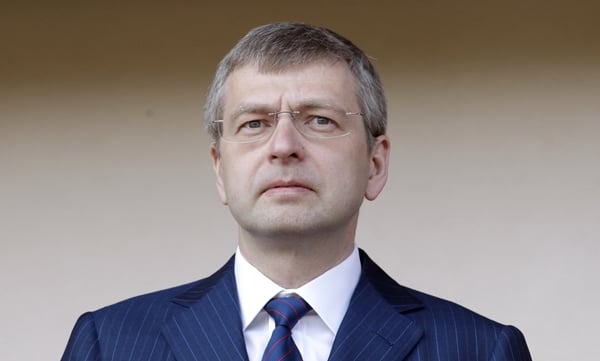
It’s hard to cry foul when you’ve just cashed in on a $450 million painting.
That, apparently, is the lesson of an unusually timed—and flat-out unusual—story published by Bloomberg today, which reports that US investigators initiated and then dropped a fraud probe into Swiss art dealer Yves Bouvier. One reason authorities decided to abandon the case after more than one year? The record-setting sale of Leonardo da Vinci’s Salvator Mundi.
The investigation into Bouvier, whose international chain of freeports earned him the nickname “the Freeport King,” was first prompted by complaints from Russian billionaire Dmitry Rybolovlev. The collector claimed he had been bilked out of up to $1 billion on a series of art deals brokered by Bouvier thanks to illicit and exorbitant markups he tacked on without his client’s knowledge. The most high-profile of these deals was Rybolovlev’s purchase of Salvator Mundi, which he bought for $128 million in 2013.
Although the reasons to abandon the investigation into Bouvier had been “building for months,” sources told Bloomberg, the “clincher” came this past fall, when the art-loving oligarch sold Salvator Mundi for a record $450.3 million at Christie’s. “Had the case proceeded, Rybolovlev’s windfall could have enabled the defense to claim that he wasn’t a fraud victim because he profited in the end,” the report notes.
(Coverage of Rybolovlev’s ties to US President Donald Trump and his inclusion on a government list of prominent figures with close ties to the Kremlin probably did not help his cause with the US Attorney’s office, either.)
A visitor takes a photo of the painting ‘Salvator Mundi’ by Leonardo da Vinci at Christie’s New York. (Drew Angerer/Getty Images)
The case against Bouvier and the feud between him and his billionaire former client has stretched out over three years and across two continents. Since 2015, Rybolovlev has pursued a multi-pronged international legal crusade against Bouvier and, more recently, sought to pull Sotheby’s into the fray over its role in several private sales.
Less than a week after his $450.3 million Leonardo sale captured headlines across the globe (and netted him more than a pretty penny), Rybolovlev was still in the thick of the legal battle, asking a judge to force Sotheby’s to release confidential documents related to his original purchase of Salvator Mundi from Bouvier.
Soon after the record-setting sale, when asked how Rybolovlev reconciled his ongoing legal battle with the stunning price for the Leonardo portrait, a representative for the Rybolovlev Family Trust told artnet News: “Thanks to the professionalism and expertise of Christie’s, the record-breaking sale of da Vinci’s Salvator Mundi has helped restore some of the value of the collection. This is a welcome development for the Rybolovlev family trusts as we undertake legal proceedings to address the shocking alleged fraud committed by Yves Bouvier who deceived the family, all while pretending to be a friend and advisor.”
A representative for the family trust declined to comment on the latest developments or the US Attorney probe.
Bloomberg acknowledged that US prosecutors rarely, if ever, declare an investigation officially closed. Instead, the office typically leaves “subjects and targets to sweat it out through the long, uneasy silence,” which conveniently gives prosecutors “the option of reopening an investigation after uncovering new evidence.”
But a person familiar with the investigation told artnet News that the probe appears to indeed be closed—at least for now. Two lead investigators in the US Attorney’s office, who took over for those who initiated the investigation, have declined to pursue it, the source says. The US Attorney’s office had no comment.
According to Bloomberg, investigators had made substantial progress before the case was abandoned. They interviewed witnesses, “issued grand jury subpoenas for records of the transactions, and persuaded a key senior executive at Sotheby’s…to be a witness in the case.”
Sotheby’s declined comment. Bouvier’s attorney could not be reached for comment.